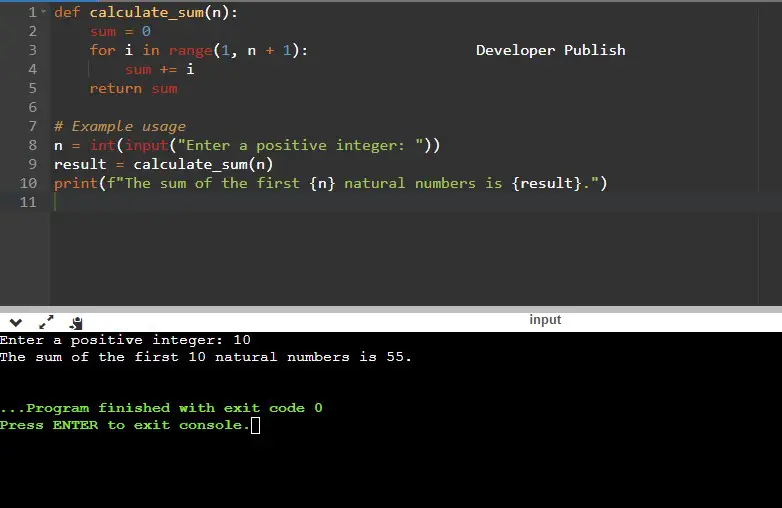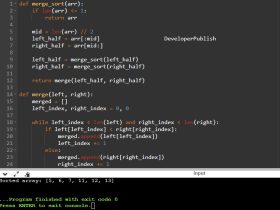Python Program to Find Sum of First N Natural Numbers
This Python program calculates the sum of the first N natural numbers. It defines a function called calculat_sum that takes an integer n as input and uses a for loop to iterate from 1 to n, adding each number to the sum. The program then prompts the user to enter a positive integer n, calls the calculate_sum function, and prints the result. It’s important to note that the program assumes the user will provide a positive integer as input.
Problem Statement
Write a Python program that calculates the sum of the first N natural numbers.
Inputs:
- An integer N representing the count of natural numbers to be considered.
Output:
- The sum of the first N natural numbers.
Python Program to Find Sum of First N Natural Numbers
def calculate_sum(n):
sum = 0
for i in range(1, n + 1):
sum += i
return sum
# Example usage
n = int(input("Enter a positive integer: "))
result = calculate_sum(n)
print(f"The sum of the first {n} natural numbers is {result}.")
How it Works
The Python program to calculate the sum of the first N natural numbers works as follows:
- It defines a function called
calculate_sumthat takes an integernas input. - Inside the
calculate_sumfunction, it initializes a variablesumto 0. This variable will store the sum of the natural numbers. - It uses a
forloop with therange()function to iterate from 1 ton+1. The loop variableirepresents each natural number. - Within each iteration of the loop, it adds the current value of
ito thesumvariable. - After the loop completes, it returns the final value of
sum. - The program prompts the user to enter a positive integer
Nusing theinput()function. - It converts the user input to an integer using the
int()function and assigns it to the variablen. - It calls the
calculate_sumfunction with the value ofnas an argument and assigns the result to the variableresult. - Finally, it prints the sum of the first N natural numbers using a formatted string, combining the value of
nandresult.
Input/ Output





Leave a Review